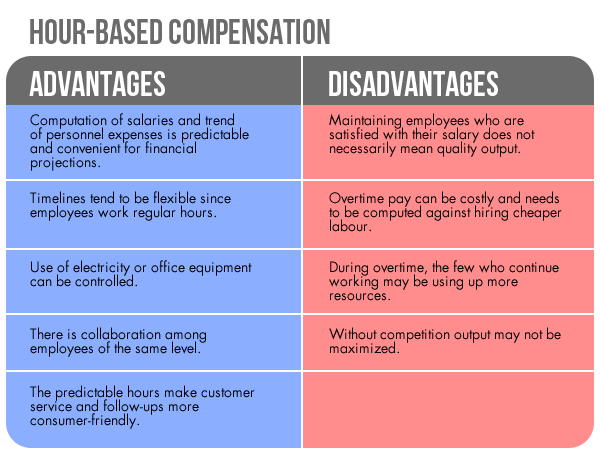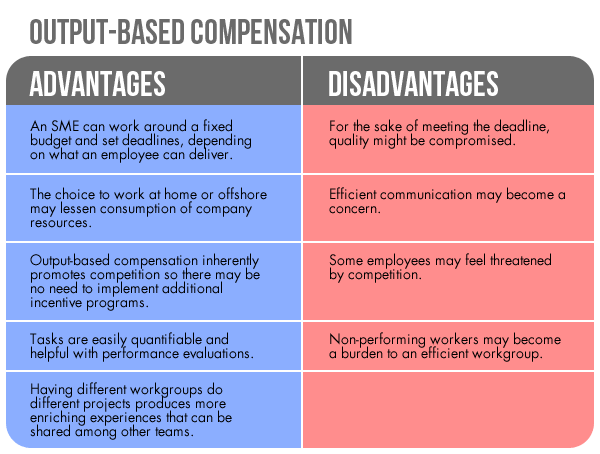Hourly or Output-based Wages: Which is better? - Business Insight

Hourly or Output-based Wages: Which is better?
Compare to multi-national corporations, small-to-medium enterprises have a greater degree of flexibility and room for innovation when it comes to their operations. This enables them to respond quickly to customer and management concerns, and also experiment with management and income-generating strategies.
One of the most fundamental aspects of operations is manpower. Maintaining a skilled workforce is costly because individual salaries tend to increase every year at a constant rate. Hence, it is crucial to examine human resources so as to monitor and reward deserving staff.
Types of wage schemes
Most organizations pay their employees by the hour. This means they are paid a fixed amount of salary per month, assuming work is at least 8 hours a day, 5 days a week. Vacations and holiday pay are fixed, as well as other non-negotiable employee benefits.
Alternatively, there are also output-based salary schemes. The most common type are for employees who are given a monthly salary to produce output regardless of the number of hours they come to work. For purposes of limitation, outsourcing will not be discussed as it is not regarded as full-time employment.
Now let’s take a closer look at the pros and cons of hour-based and output-based compensation:


Which scheme should you choose?
The success of operations depends largely on the needs of the company and how these are addressed. The output-based package would be advantageous for employees that are self-motivated and need minimal use of resources. For employers, it can guarantee the predictability of results when there is already an established trust between the employer and the employee.
On the other hand, an hour-based package would benefit small-to-medium enterprises that have routine or quantifiable tasks since operating expenses would be easier to compute. As always, to ensure the success of operations, effective quality control standards and monitoring guidelines should be implemented by the entrepreneur.
